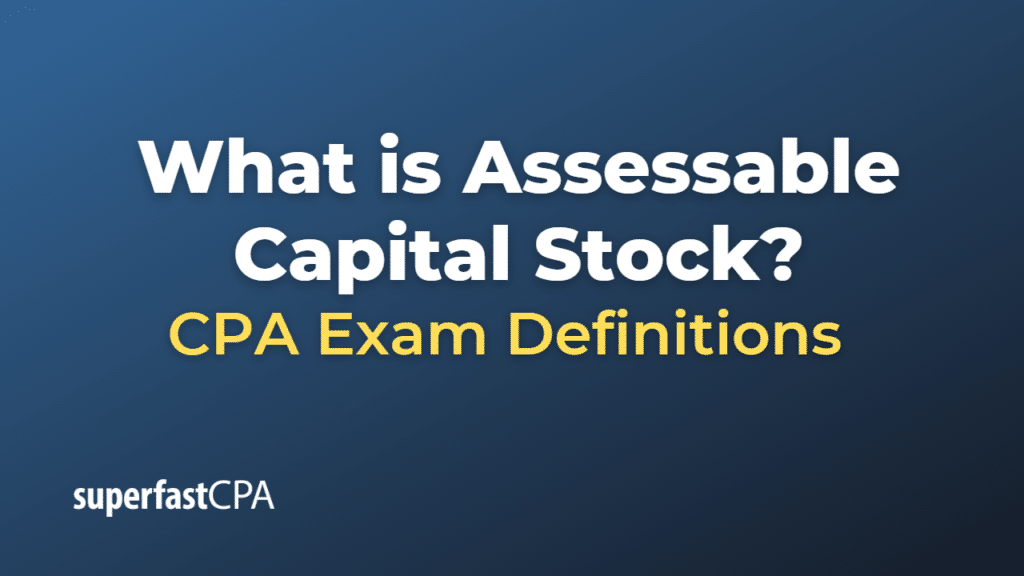Assessable Capital Stock
Assessable capital stock refers to a type of stock issued by a corporation that allows the company to make additional assessments or calls for more capital from its shareholders. This means that, in addition to the initial purchase price, shareholders may be required to contribute additional funds to the corporation if the company faces financial difficulties or needs additional capital for expansion or other purposes.
Assessable capital stock is less common in modern corporate structures, as most companies now issue non-assessable shares, which do not require shareholders to make any further contributions beyond the initial purchase price. This change is mainly due to the preference of investors, who generally prefer the limited liability and predictability associated with non-assessable shares.
Example of Assessable Capital Stock
Suppose Company XYZ issues assessable capital stock. An investor, John, purchases 100 shares of this stock at $10 per share, for a total investment of $1,000. Later on, Company XYZ faces financial difficulties and decides to call for additional capital from its shareholders to cover its expenses and continue operations.
The company’s board of directors decides to assess an additional $5 per share. As a shareholder, John is now required to contribute an additional $5 for each of the 100 shares he owns, totaling $500 in additional capital.
In this example, John’s total investment in Company XYZ increases from his initial $1,000 to $1,500 due to the additional assessment on his shares. This demonstrates the potential risks and obligations associated with owning assessable capital stock, as investors may be required to contribute more capital than their initial investment when the company calls for additional funds.













